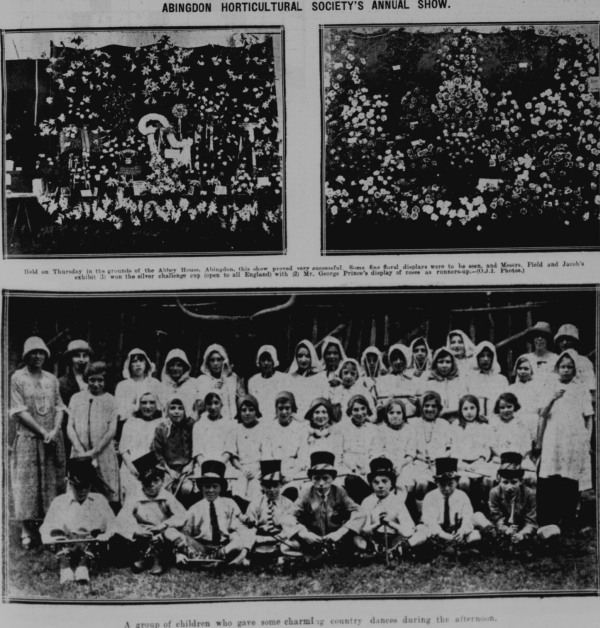
ABINGDON HORTICULTURAL SHOW — The Abingdon Horticultural Society’s annual show on Thursday 14th August 1925 was a great success, with a high number of entries and strong quality throughout. The handsome challenge cup, presented by the tradespeople of the town for the best exhibit of cut flowers (open to all England), attracted only three entries, but the winning display by an Oxford firm was outstanding and became the chief attraction in the exhibition tents.
The recently added rabbit and pigeon sections showed increased support, and the judges praised the standard of entries.
Among other entertainments, a display of Morris dancing by children in costume proved especially popular. Their performance was carried out with precision, and their behaviour reflected credit on their trainers. The Ock-street Horns used in some dances were kindly lent by Alderman A.W. Morland.
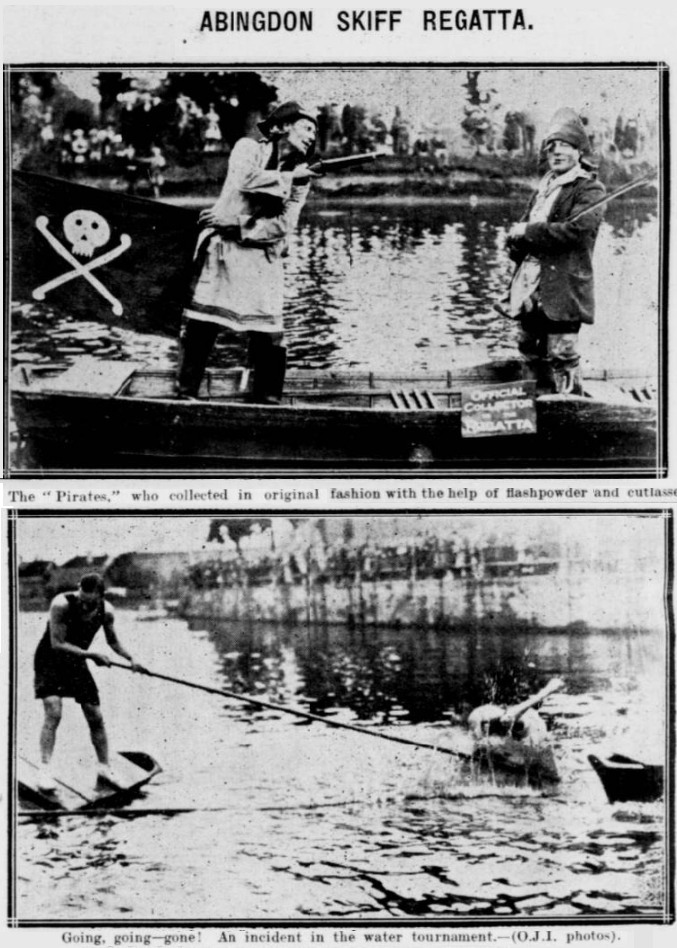
ABINGDON SKIFF REGATTA — The Abingdon Skiff Regatta was held on Saturday 22nd August 1925 in the Wilsham Reach. Some very good racing was witnessed, with 57 events in the programme. During the afternoon and evening music was performed by the Abingdon Town Band. At the conclusion of the races the prizes were presented by the Mayoress, followed by dancing on the Nag’s Head Hotel tennis lawns.
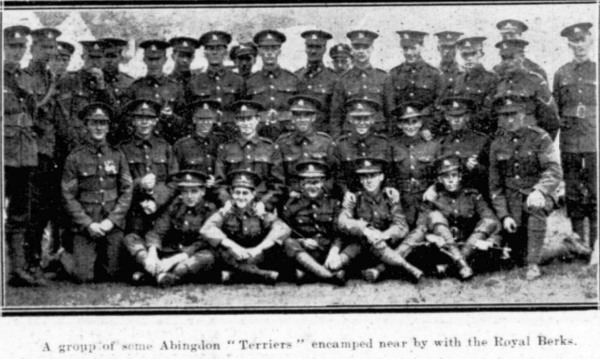
ABINGDON LOCAL TERRITORIALS — The Abingdon Platoon of the 4th Battalion, Royal Berkshire Regiment – The Abingdon ‘Terriers’ – returned from Weymouth, where they had been in camp for a fortnight.
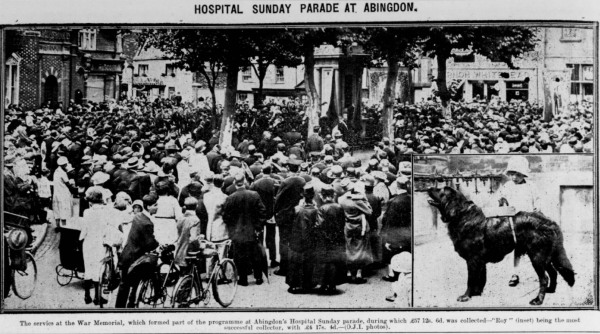
HOSPITAL SUNDAY — Abingdon Hospital Day was held on Sunday 23rd August 1925. There was a Church parade of friendly societies and other organisations in the afternoon, headed by the Abingdon and Didcot Bands, and the Salvation Army and Steventon Bands. In High Street the procession met the Mayor and Corporation, and then proceeded to St. Helen’s Church, where a service was conducted by the Vicar (Rev. C. S. Fleet). Afterwards the parade again formed up and marched to the cenotaph, where a minute’s silence was observed, and two verses of the hymn O God, Our Help in Ages Past were sung. In the evening a concert was given by the massed bands in the Abbey House grounds. (‘Roy’, the dog inset in the picture, was the most successful collector with £4 17s 4d. In total £57 12s 6d was collected for local hospitals.)
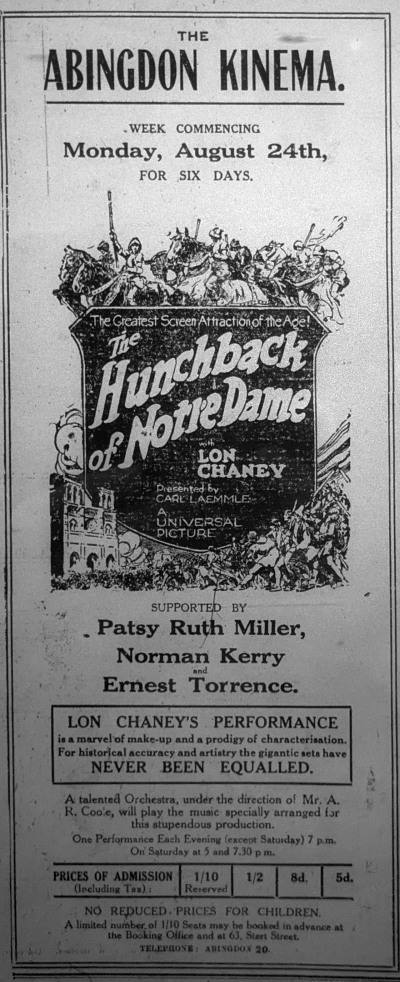
KINEMA.— The Hunchback of Notre Dame, the film production of Victor Hugo’s famous novel, was presented for six days commencing Monday, August 24th, 1925.
Probably never before has there been a picture of such magnificence – costing £300,000, exact in its detail, artistic in conception, and wonderful in the acting of the principals and in the handling of the vast mob scenes, in which more than 3,000 persons took part.
Lon Chaney, one of the finest interpreters of unusual character roles, gave a remarkable performance as Quasimodo, the hunchback bellringer of Notre Dame, with Ernest Torrence as Clopin, the underworld king, and Patsy Ruth Miller as Esmeralda.
The film played to full houses throughout the six days. A talented orchestra, conducted by Mr R A Coole, played music specially arranged for this production.
Thanks to the Oxford Journal for the photographs of Abingdon events from the British Newspaper Archive. Also thanks to the Faringdon Advertiser and Vale of the White Horse Gazette from the British Newspaper Archive for story details and the North Berks Herald microfilm in the library for story details and the Kinema advert.










